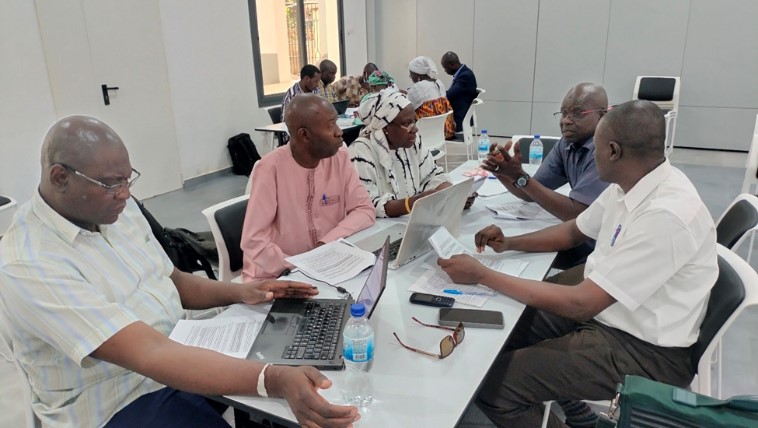The Gambia, located in West Africa, is strongly committed to enhancing its human resources, as demonstrated by its policy of free basic education for all. A key aspect of this commitment is the focus on Early Childhood Development (ECD), a relatively new area for both policy and programming in the country. This emerging priority presents significant opportunities for collaboration, partnerships, and capacity building.
To strengthen ECD delivery in West Africa, the Africa Early Childhood Network (AfECN), under the Early Childhood Workforce Initiative (ECWI), partnered with the Government of The Gambia and the Gambia National ECD Network to conduct a comprehensive diagnostic of the early learning workforce. With technical support from ADARA Consultancies, this initiative reflects The Gambia’s high level of governmental commitment. Demonstrating this, the Permanent Secretary of Basic Education appointed nine senior officials from the Ministry of Education to lead the diagnostic process and provide essential government leadership.
Key challenges, gaps, and opportunities
The diagnostic process brought together a diverse group of stakeholders, including representatives from the Ministry of Basic Education, the University of The Gambia, the Teachers Union, the private sector, inclusive education advocates, relevant government ministries and agencies, and other key institutions. The primary objective was to equip national stakeholders with critical insights into the early learning workforce and the challenges it faces. A key tool in this process was the Pre-Primary Subsector Analysis Tool, adapted by the Gambian team. Originally developed by UNICEF, this tool helps assess the strengths and weaknesses of the country’s pre-primary education sector.
Held in Banjul, Gambia, from February 12-16, 2024, the diagnostic process included various presentations on the early care and education (ECE) workforce, followed by a robust stakeholder engagement process to identify key challenges, gaps, and opportunities. Several critical challenges facing the ECE workforce in The Gambia were identified:
- Inadequate recruitment and deployment strategies.
- Limited pre-service opportunities and alternative pathways, including a lack of degree programs and restricted workforce development programs.
- Absence of a Continuous Professional Development (CPD) program for ECE personnel, including non-teaching staff.
- Insufficient career development pathways to attract and retain ECE personnel.
- Limited performance management systems.
- No institutionalized system to facilitate reflection and preparation for teaching at the school level.
- Absence of a national framework for performance-based promotion.
These challenges were traced to several root causes, including policy gaps related to recruitment, deployment, workforce development, and compensation. Other contributing factors included insufficient capacity to scale existing training programs to degree levels, inadequate funding, limited political will, and the lack of a national framework for CPD and performance-based promotion in the ECE sector.
How Is The Gambia Implementing Strategic Reforms and Building Capacity for Sustainable ECD Growth?
While the diagnostic process highlighted these challenges, it also identified strategies for improvement. The Gambian team is now poised to implement the recommendations, focusing on policy reforms, strategic development, and ECE program planning. Additionally, insights from The Gambia’s experience will inform regional advocacy efforts, as demonstrated during a joint AfECN-ANECD learning exchange where the findings were shared.
An important outcome of this process was the capacity-building component. National stakeholders received training on conducting an ECE workforce diagnostic, with practical sessions included.
"The diagnostic workshop was excellent and very educational. It has significantly enhanced our capacity."
-Participant, The Gambia’s Ministry of Education
In summary, The Gambia’s dedication to improving its ECD sector, supported by collaborative efforts with national and international partners, sets a strong foundation for the continued development of its early learning workforce.
Sign up to the Early Childhood Workforce Initiative’s mailing list to stay updated about the work done across the Regional Networks.

